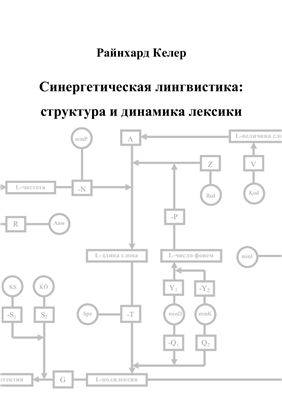Монография, 2007, 140 стр.
The book describes the systems theoretical framework of synergetic linguistics
using the lexical subsystem of language as an illustrative example. The approach
is motivated by its demand not only to decribe linguistic phenomena but also to
provide a means to explain them. The basis of explanation is a functional one. Functional explanations as a special kind of deductive-nomologic explanation is
presented in terms of the philosophy of science.
Specifically, the book investigates several selected quantitative properties of
lexical units: frequency, polysemy, length, polytextuality etc. and the properties of their inventories. These variables are studied in their interplay
and their effects on each other. At the same time, the linguistic processes are
described as "order parameters", i.e. macroscopic quantities which "enslave" the
dynamic behavior of the microscopic linguistic units. These order parameters have the status of axioms and are interpreted linguistically as requirements of
the languages' environment, i.e. the social systems which use a given language.
The model and its parts are statistically tested on a text corpus and dictionaries.
The book describes the systems theoretical framework of synergetic linguistics
using the lexical subsystem of language as an illustrative example. The approach
is motivated by its demand not only to decribe linguistic phenomena but also to
provide a means to explain them. The basis of explanation is a functional one. Functional explanations as a special kind of deductive-nomologic explanation is
presented in terms of the philosophy of science.
Specifically, the book investigates several selected quantitative properties of
lexical units: frequency, polysemy, length, polytextuality etc. and the properties of their inventories. These variables are studied in their interplay
and their effects on each other. At the same time, the linguistic processes are
described as "order parameters", i.e. macroscopic quantities which "enslave" the
dynamic behavior of the microscopic linguistic units. These order parameters have the status of axioms and are interpreted linguistically as requirements of
the languages' environment, i.e. the social systems which use a given language.
The model and its parts are statistically tested on a text corpus and dictionaries.

